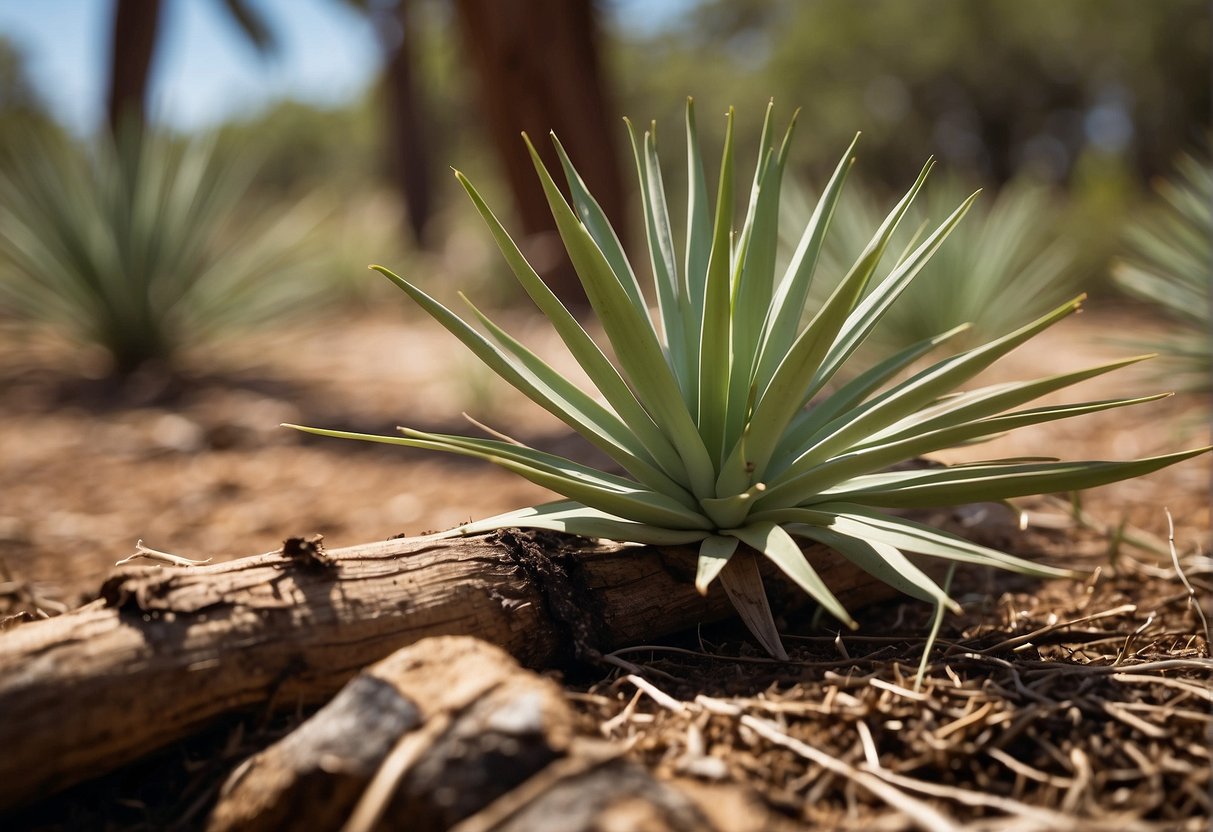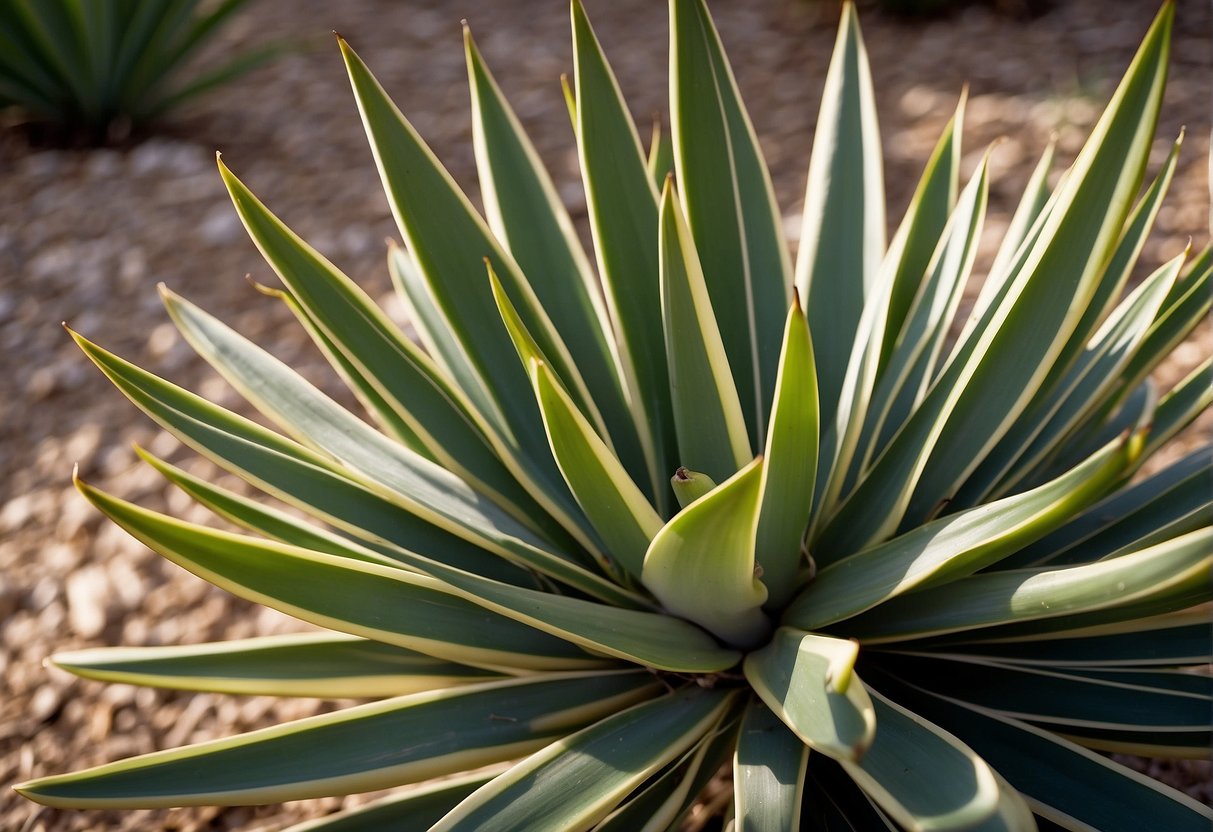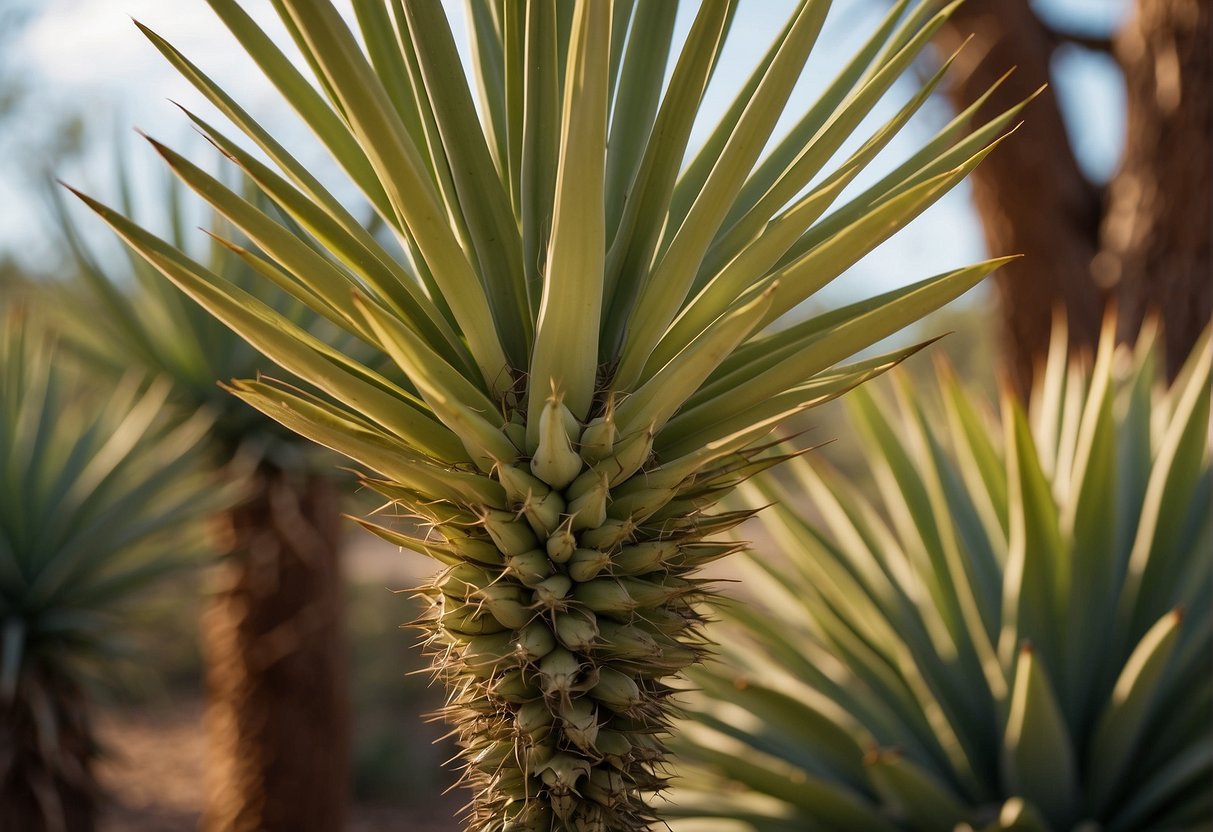What Causes a Yucca Plant’s Trunk to Get Soft: Common Culprits and Solutions
As an enthusiastic yucca plant owner, you’re likely familiar with its ease of care, making it an ideal addition of green to your home. However, should you observe the trunk of your yucca plant becoming mushy, it’s a valid cause for concern. A mushy trunk indicates that your plant is not in good health and requires immediate attention. In this piece, we delve into why a yucca plant’s trunk might turn mushy and offer remedial measures to nurse your plant back to health.

Understanding yucca plant health is essential to keeping your plant thriving. Yucca plants are native to arid regions and require well-draining soil and infrequent watering. Overwatering or improper drainage can lead to root rot, which can cause the trunk to become soft. Additionally, yucca plants are susceptible to pests such as mealybugs and spider mites, which can also damage the plant’s health and lead to a soft trunk. By understanding the factors that contribute to yucca plant health, you can take steps to prevent a soft trunk from occurring.
Causes and solutions for a soft yucca plant trunk vary depending on the underlying issue. In some cases, the plant may be overwatered, and the solution is to reduce the frequency of watering. In other cases, the plant may have root rot, and the solution is to repot the plant with fresh, well-draining soil. By identifying the cause of your yucca plant’s soft trunk, you can take targeted steps to help your plant recover and thrive.
Key Takeaways
- A soft yucca plant trunk is a sign of an unhealthy plant.
- Understanding yucca plant health is essential to preventing a soft trunk.
- Causes and solutions for a soft yucca plant trunk vary depending on the underlying issue.
Understanding Yucca Plant Health

Yucca plants are known for their hardy nature and drought-tolerant qualities, but sometimes their trunks can become soft and weak. Understanding the optimal growing conditions and common signs of distress can help you maintain the health of your yucca plant.
Optimal Growing Conditions
Yucca plants thrive in a wide range of temperatures, from 30 to 90°F, and prefer well-draining soil with low to moderate humidity. They can tolerate direct sunlight but also grow well in partial shade. Indoor yucca plants can thrive in low light conditions, making them a popular houseplant.
Common Signs of Distress
If your yucca plant’s trunk is getting soft, it could be a sign of overwatering or poor drainage. Yellow leaves can indicate underwatering or a lack of sunlight, while green leaves are a sign of healthy growth.
To maintain the health of your yucca plant, make sure to provide it with the right growing conditions and proper plant care. Yucca plants are part of the agave family and require minimal maintenance, making them an excellent choice for those looking for a low-maintenance plant.
Causes and Solutions for Soft Trunk
If you notice that the trunk of your yucca plant is getting soft, it is essential to take action immediately. Here are some possible causes and solutions to help you revive your yucca plant.
Watering Issues
Overwatering or underwatering can cause the trunk of your yucca plant to become soft. To prevent this issue, make sure to water your yucca plant only when the top 2 inches of soil are dry. Ensure that the pot has proper drainage to avoid waterlogging.
Soil and Drainage Problems
Yucca plants prefer well-draining soil. Sandy or porous soil can help avoid waterlogging and root rot. If the soil is compacted and does not drain well, it can cause the trunk to become soft. Repotting the yucca plant in well-draining soil can help solve this issue.
Disease and Pests
Fungal diseases, such as root rot, can cause the trunk of your yucca plant to become soft. Mealybugs, scale, and spider mites can also affect the health of your yucca plant. To prevent these issues, ensure proper air circulation, maintain low humidity, and keep the plant clean. If you notice signs of disease or pests, treat the plant with appropriate measures.
Environmental Stress Factors
Extreme temperatures, lack of sunlight, and too much fertilizer can cause stress to your yucca plant. Ensure that the plant is placed in an area with adequate sunlight and ventilation. Avoid over-fertilizing, and follow the recommended frequency and amount of fertilizer.
In conclusion, identifying the cause of soft trunk and taking appropriate measures can help revive your yucca plant. With proper maintenance and care, your yucca plant can thrive and add texture to your landscaping while being low maintenance.
Frequently Asked Questions

How can overwatering affect the health of a yucca plant’s trunk?
Overwatering is one of the most common causes of a soft yucca trunk. When a yucca plant is overwatered, the soil becomes waterlogged, which can lead to root rot. The roots of the plant are unable to absorb oxygen, and as a result, they begin to rot. This can cause the trunk of the plant to become soft and weak.
What are the signs of root rot in yucca plants?
The signs of root rot in yucca plants include yellowing leaves, wilting, and a soft, mushy trunk. The plant may also have a foul odor, and the roots may appear brown or black and mushy.
How does improper drainage lead to a soft yucca trunk?
Improper drainage can lead to a soft yucca trunk by causing the soil to become waterlogged. When the soil is unable to drain properly, it becomes saturated with water, which can lead to root rot and a soft, weak trunk.
What pests could cause a yucca trunk to become soft?
Pests such as mealybugs, spider mites, and scale insects can cause a yucca trunk to become soft. These pests feed on the sap of the plant, which can weaken the trunk and make it soft and mushy.
Can a lack of nutrients lead to yucca trunk softening?
Yes, a lack of nutrients can lead to yucca trunk softening. Yucca plants require a balanced diet of nutrients to grow and thrive. A lack of nutrients can weaken the plant and make it more susceptible to pests and diseases, which can cause the trunk to become soft.
How do I identify and treat fungal diseases in yucca plants?
Fungal diseases in yucca plants can be identified by the presence of yellowing leaves, wilting, and a soft, mushy trunk. To treat fungal diseases, it is important to remove any infected plant material and improve the plant’s growing conditions. This may include adjusting the watering schedule, improving drainage, and using a fungicide to treat the plant.

